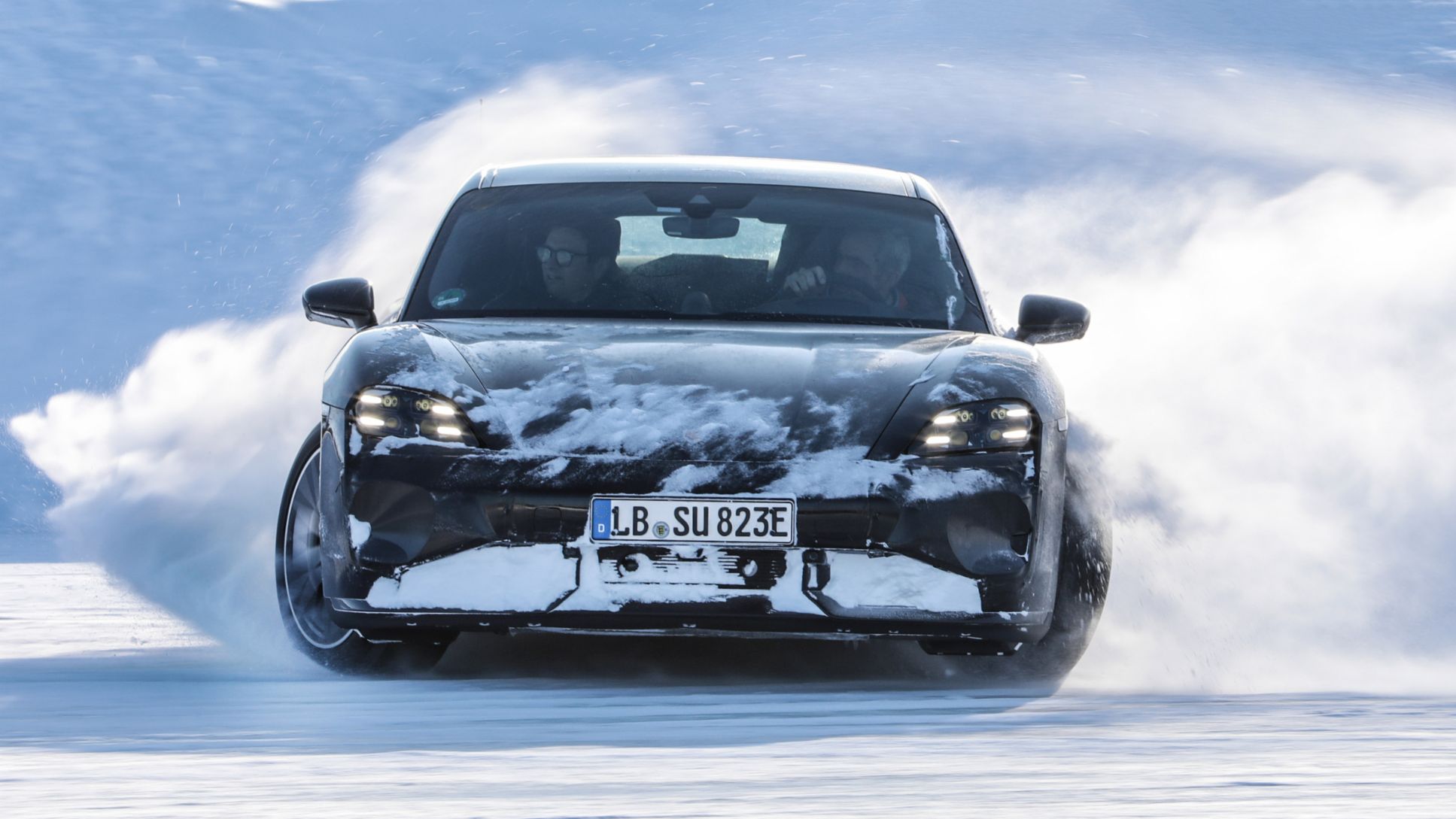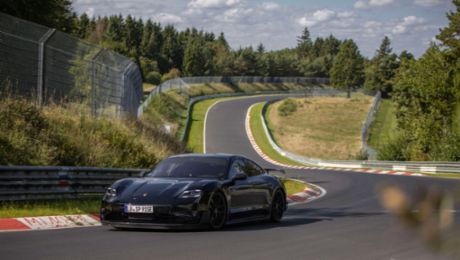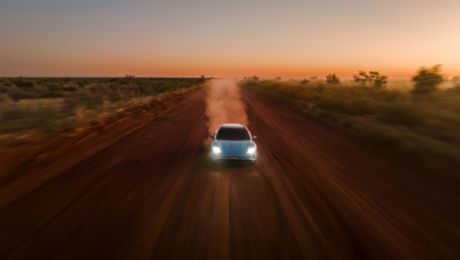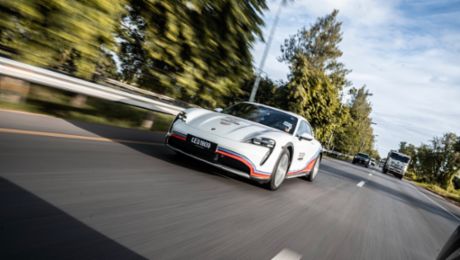The sports sedan, Cross Turismo and Sport Turismo models of the new generation have put in some 3.6 million test kilometres on proving grounds, racetracks and public roads all around the world. And under the most extreme conditions, too: temperatures ranged from +53 degrees Celsius in California’s Death Valley to -41 degrees Celsius north of the Finnish Arctic Circle.
“Faster, higher, further"
Following early computer simulations and extensive validations on test benches, the updated Taycan is now undergoing the final stages of real testing on handling circuits and public roads. “Faster, higher, further – we have improved the new Taycan in practically every discipline compared to its predecessor”, says Model Line Vice President Kevin Giek. “And because the changes are so extensive, the gruelling testing programme is almost comparable to that for a new model.” Right from launch, all three body variants will come with extensive modifications – the Taycan sports sedan, the versatile Taycan Cross Turismo, which is available with an off-road package, and the sporty-yet-practical Taycan Sport Turismo.

Of the 3.6 million test kilometres, 300,000 were completed in cold-country conditions and 200,000 in hot country locations. In Finland, some 350 kilometres north of the Arctic Circle, the electric sports car not only demonstrated its exceptional driving dynamics on snow and ice but also convinced with almost halved charging times at colder temperatures. Under freezing conditions, the new Taycan showed that it can handle even the most challenging conditions on frozen lakes and in deep snow. Just as demanding, yet at the other end of the temperature scale, were the soaring temperatures of Death Valley, where hot-country endurance tests were conducted. Among other functions, the Porsche development team put the battery charging system and the reliability of the thermal management system under extreme temperatures through its paces.
“At Porsche, electric cars must undergo the same rigorous testing programme as our combustion-engine sports cars. Alongside exceptional performance, a key requirement is uncompromising day-to-day usability under all climatic conditions”, says Head of Taycan Testing, Florian Stahl. “At its market launch in a few months, the substantially upgraded Taycan will have completed extensive worldwide tests in a total of 17 countries in temperatures ranging from -41 to +53 degrees Celsius.”





